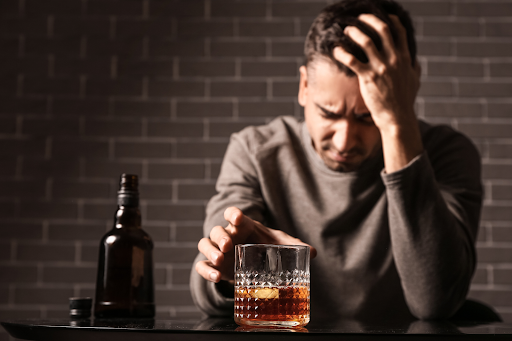Addiction recovery often seems like a straightforward path: overcome the initial struggle, and a stable life will follow. But for many, the journey is anything but linear. Relapse can happen even when life feels good, not just during times of stress or crisis. This seemingly contradictory behavior is influenced by complex psychological and physiological factors.
Understanding these triggers and learning practical strategies can help individuals maintain sobriety and navigate recovery successfully, no matter the circumstances. Wellbrook Recovery is committed to helping you understand why relapse can happen, so you can stay prepared and continue your journey toward lasting sobriety.
Table of Contents
Why Do People Relapse?
People relapse because of triggers, stress, or unresolved emotional and psychological issues that overwhelm their coping abilities. Often relapse is misunderstood. People assume it only happens during stress or crisis, but many actually relapse after a good day, not a bad one.
Addiction is a chronic disease, not a moral failing, that fundamentally alters the brain’s reward system and decision-making centers. Because it’s tied to brain patterns, both positive and negative experiences can activate it.
What Causes a Relapse? How Positive Emotions Can Be Unexpected Triggers
Emotional well-being is a strong, yet often overlooked, relapse trigger. When life is going well and positive emotions are abundant, individuals in recovery can experience a false sense of security, leading them to let down their guard.
The Impact of Stress and Life Changes on Recovering Addicts
Even during positive periods, stress and life changes can bring a sense of discomfort that triggers relapse. These stressors can coexist with good times and include:
- New job or promotion
- New relationship
- Moving to a new city
- Financial success
- Celebrating milestones
- Family gatherings or holidays
- Graduation or retirement
The Illusion of Control for Individuals in Recovery

The very happiness recovered addicts have worked so hard for can ironically lead them to believe they are strong enough to use just once without consequence. This overconfidence, combined with the brain’s association of positive feelings with substance use, can create a powerful pull back to old habits. The surge of dopamine from a celebratory event or a feeling of success can be so intense that their brain, still wired for addiction, craves the even greater rush provided by drugs and alcohol. The pursuit of an even higher high can lead to a return to substance use, transforming a moment of joy into the gateway to relapse.
The Importance of Continued Support and Self-Awareness After Active Addiction
Recovery is a lifelong journey requiring a constant commitment to self-awareness and a strong support system. A dangerous misconception is that once life is going well, help is no longer needed. Maintaining sobriety, even during positive times, depends on staying connected to a network of support through therapy, support groups, or a trusted inner circle. This ongoing connection provides a vital outlet for processing emotions and reinforcing the coping strategies necessary to navigate life’s inevitable ups and downs without returning to substance use.
Building Resilience in Recovery
Building resilience is essential for maintaining sobriety. It’s the ability to adapt to challenges, and it can be developed and strengthened over time. Proactive coping strategies are key and include:
- Journaling: To identify emotional triggers and track progress.
- Mindfulness and Meditation: To manage stress.
- Regular Exercise: To improve both physical and mental well-being.
- Establishing Healthy Routines: To provide stability.
- Practicing Gratitude: To shift focus from what’s lacking to what’s going right.
By creating a strong foundation of self-awareness and healthy habits, individuals can build the emotional stamina needed to face any challenge.
Recognizing Relapse Signs Before It Happens
Being aware of the signs of a potential relapse is a critical skill for anyone in recovery. Often, a return to substance use isn’t a sudden event but a gradual process. This can begin with changes in behavior, mood, or thinking. Early warning signs include:
- Changes in Behavior: Isolating oneself, returning to old social circles, or neglecting responsibilities.
- Negative Shifts in Mood: Feeling irritable, restless, or discontent, often referred to as a “dry drunk” state.
- Unhealthy Thinking Patterns: Believing one can “handle” a single use or romanticizing past drug or alcohol use.
- Neglecting Self-Care: Abandoning healthy routines like exercise, meditation, or journaling.
Creating an Action Plan for High-Risk Relapse Situations
Having a personalized action plan for high-risk situations involves preparing for scenarios where triggers might be present, even during seamless positive times. This proactive measure can prevent a moment of weakness becoming a full-blown relapse. Here is how to create an action plan for high-risk situations:
- Identify Triggers: Make a list of people, places, or emotions that have led to past substance use.
- Develop a Support Network: Have a list of trusted contacts to call in an emergency, including a sponsor, therapist, or sober friend.
- Practice Coping Strategies: Rehearse healthy coping mechanisms like calling a support person, going for a walk, or using mindfulness techniques.
- Create an Escape Route: Have a plan to physically remove yourself from a triggering situation if necessary.
- Remind Yourself of Your “Why”: Keep a note or image that reminds you of your reasons for getting sober.
Continuing the Journey of Sobriety After a Relapse
The path to addiction recovery is not a destination, but a lifelong journey of growth and self-discovery. This reality underscores the critical importance of continued support, the deliberate practice of building resilience, and a commitment to self-awareness.
At Wellbrook Recovery, we understand that sobriety is an ongoing process requiring constant vigilance, regardless of external circumstances. By embracing the lifelong nature of recovery, individuals can equip themselves with the tools to navigate any situation, ensuring a future of happiness, and lasting freedom from addiction.
If you or a loved one is struggling with addiction, contact us today.
Frequently Asked Questions: Why Do Addicts Relapse When Things Are Good?
Is relapse part of recovery?
Relapse can be a part of the recovery journey for many individuals. It doesn’t mean failure, instead, it can signal areas that need more attention, such as coping strategies or support systems. Understanding relapse as a possible step in the process helps people approach recovery with patience and resilience.
Why do alcoholics relapse when things are going well?
Relapse is not only triggered by stress or negative emotions. Positive events, excitement, or feelings of celebration can also reignite old habits. The brain associates certain emotions with past substance use, so even good experiences can trigger cravings or impulsive behaviors if coping mechanisms aren’t in place.
How can relapse be prevented?
Preventing relapse involves recognizing triggers, building strong coping skills, and maintaining a support network. Regular therapy, peer support groups, and proactive planning for high-risk situations can all reduce the likelihood of relapse and strengthen long-term recovery.
Why do I relapse when things are going well?
You may relapse during positive moments because your brain’s reward system is still wired to seek the quick “high” associated with alcohol or substances. Celebratory moods, social situations, or success can activate these neural pathways, making relapse more likely if your recovery tools aren’t actively applied.
If you find yourself relapsing, reach out for support immediately. Whether it’s a sponsor, counselor, or Wellbrook Recovery’s rehab program, you can get back on track without shame or delay.











